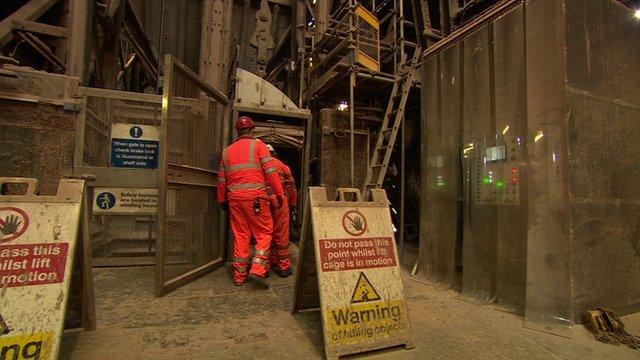Winsford Salt Mine: Plan to extend hazardous waste storage until 2045
- Published
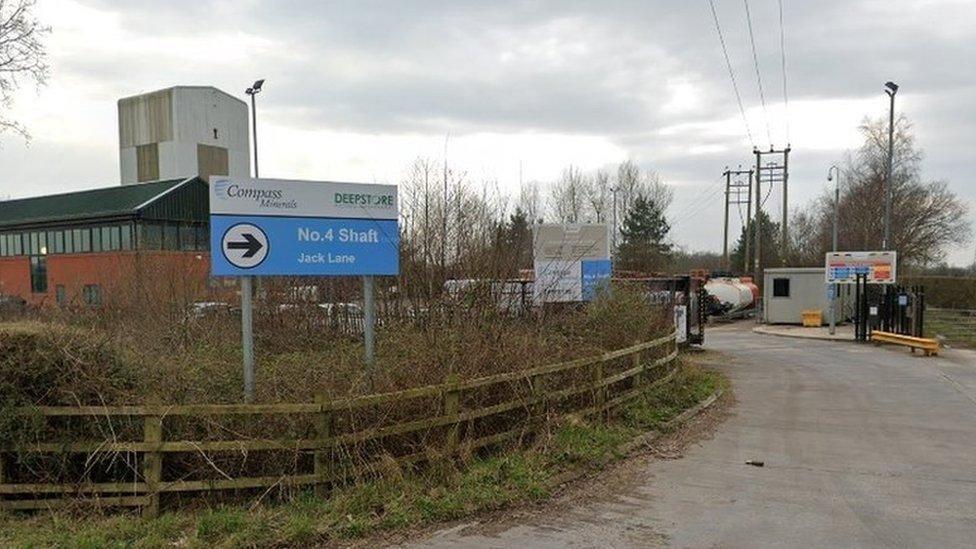
Hazardous waste has been stored in a shaft at Winsford salt mine since 2004
The underground dumping of hazardous waste at Britain's only working salt mine looks set to continue until 2045.
A shaft at Winsford Rock Salt Mine in Cheshire has been used to store hazardous material since 2004 but permission is due to run out in 2025.
Council planning chiefs are being advised to approve proposals to extend it for at least 20 more years.
A report to the planning committee said it would help ensure that the country has "sufficient disposal capacity".
The mine on Jack Lane in Bostock has been operating since 1844 and is used to mine rock salt for icy roads.
It was classed as ideal for the hazardous waste because of its dry caverns stretching over five sq miles (12.8 sq km), the Local Democracy Reporting Service said.
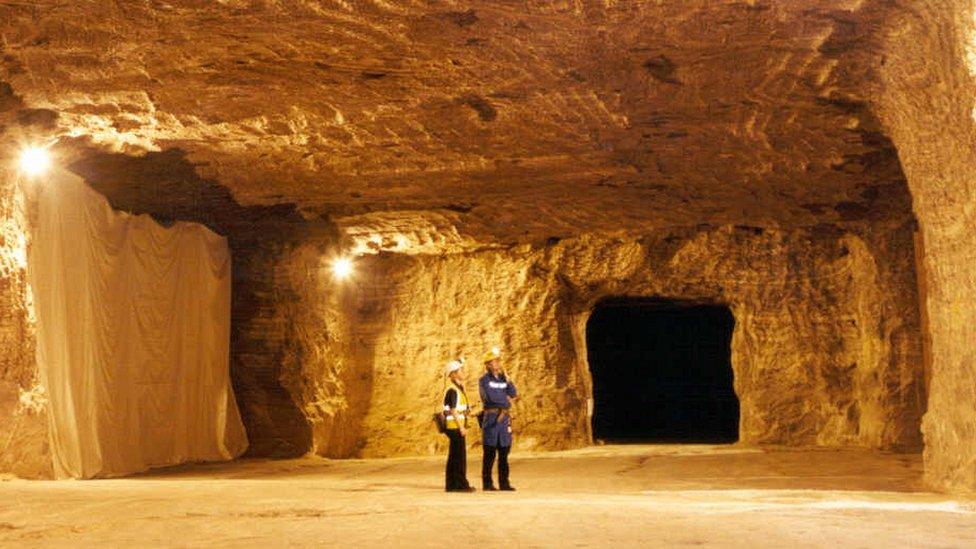
Winsford Mine runs under Cheshire four miles east-to-west and three miles north-to-south
When proposals to store the waste were first made, there was fierce opposition from some local politicians and residents, including a high court challenge, and a public inquiry was held.
But in 2004, the then deputy Prime Minister John Prescott gave permission for shaft number four to be used, saying it was the "the most sustainable method" for disposing of the waste.
Cheshire West and Chester Council planning chiefs will meet on 10 May to decide over the extension.
The shaft - known as Minosus - is operated by waste and utilities company Veolia.
The waste is mainly solid ash formed from contaminants generated by exhaust gases at energy recovery facilities, and soda slag streams from battery recycling.
A report to the planning committee, said: "The current permission meets the capacity needs, and therefore there is a continued capacity need for the development, for the appropriate final disposal of hazardous wastes as set out within the proposed timeframe.
"The proposal would help ensure that the country as a whole has sufficient disposal capacity to meet the waste arisings generated."

Why not follow BBC North West on Facebook, external, Twitter, external and Instagram, external? You can also send story ideas to northwest.newsonline@bbc.co.uk, external
Related topics
- Published17 February 2016
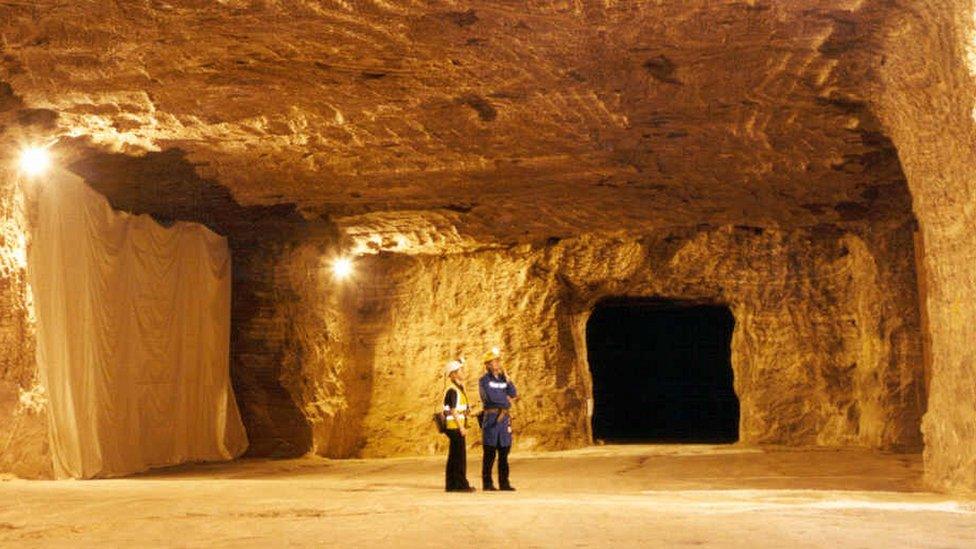
- Published3 November 2014
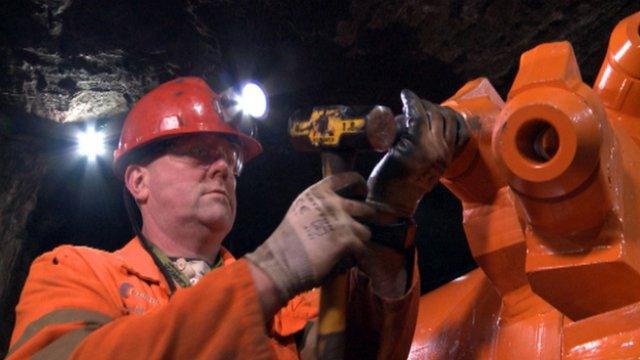
- Published26 August 2015
